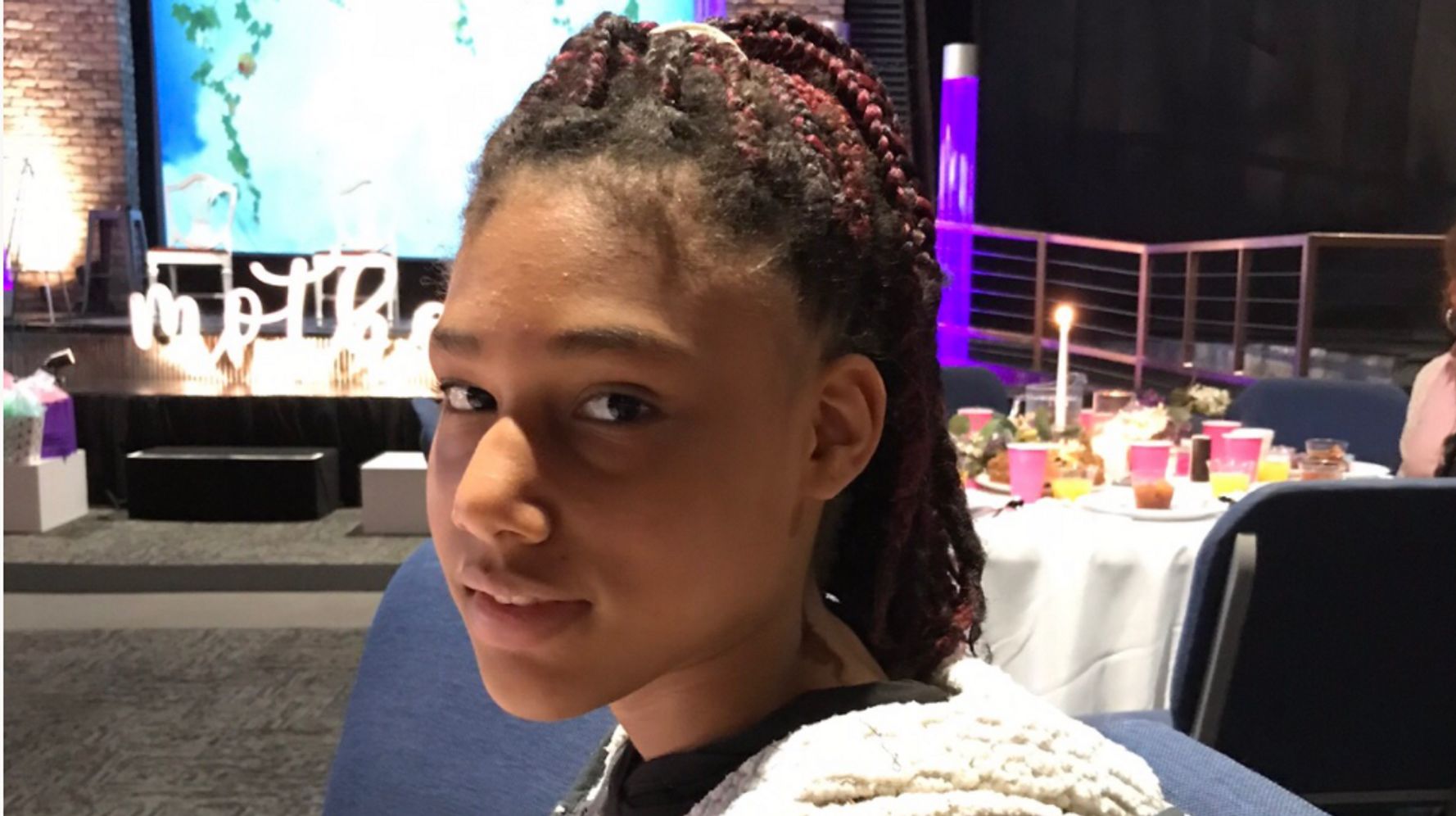[ad_1]

Honestie Hodges, 14, a “beautiful, sassy, smart” teenager, made national news at age 11 after police in Grand Rapids, Michigan, disturbingly handcuffed her outside her home in 2017. On Sunday, she died from COVID-19 complications, according to her family.
Alisa Niemeyer, Honestie’s grandmother, posted updates about the 14-year-old’s health condition on a GoFundMe page she created on Nov. 13. On the website, Niemeyer said her granddaughter had been taken to the Helen DeVos Children’s Hospital in Grand Rapids on Nov. 9 — her birthday — and had tested positive for the coronavirus. The hospital sent Honestie home, but she was later rushed back and moved to the intensive care unit, Niemeyer said.
She updated the page on Sunday to say her grandchild had died.
Honestie first made national headlines after bodycam footage showed Grand Rapids police officers handcuffing the then-11-year-old Black child with their guns drawn outside her home. Police said at the time that officers were searching for a suspect accused of stabbing another relative.
The suspect, a white woman in her 40s, was later found at another home and arrested. Honestie, meanwhile, could be heard in the footage screaming in terror.
Many were outraged by how Grand Rapids Police Department officers had treated a frightened child. The incident fueled continued nationwide conversations surrounding police interactions with Black children.
Honestie herself spoke out about the incident at the time.
“I have a question for the Grand Rapids police: If this happened to a white child, if her mother was screaming, ‘She’s 11,’ would you have handcuffed her and put her in the back of a police car?” she asked, according to Michigan’s MLive.
The Grand Rapids Police Department’s actions toward Honestie sparked an internal investigation. The police chief at the time, David Rahinsky, said that listening to the girl’s frightened reaction in the footage made him nauseous.
But none of the officers involved were disciplined after the investigation found that they did not violate the department’s policy. The department later adopted the “Honestie Policy” to improve police interactions with children.
On Honestie’s GoFundMe page, Niemeyer listed the medical care that her granddaughter had received during her hospitalization, including an iron transfusion and a blood transfusion. She then wrote on Nov. 14 that Honestie had been placed on a ventilator.
On Nov. 22, Niemeyer updated the page: “It is with an extremely heavy heart that I have to tell all of you that my beautiful, sassy, smart loving Granddaughter has gone home to be with Jesus.”
Lynn Sutfin, public information officer for the Michigan Department of Health & Human Services, explained in a statement that at least one person younger than 14 has died from COVID-19 in Michigan.
“MDHHS mourns the loss of every life lost in relation to COVID-19 and continues to work tirelessly to protect all Michiganders from this deadly disease,” the statement read. It later continued, “There have been less than 6 deaths of individuals 0-19 years old in Michigan.”
The department does not provide the exact number of deaths for an age group if there are less than six deaths, Sutfin said.
Many people on Twitter have responded to news of Honestie’s death, analyzing how two pandemics — systemic racism and the coronavirus — impacted her life and how they intersect.
A Centers for Disease Control and Prevention report analyzing data from Feb. 12 to July 31 found that while symptoms associated with COVID-19 were milder for children compared to adults, there were racial disparities in the number of coronavirus-related deaths among people under age 21.
The agency found that 121 people under age 21 died during that time period. Of them, 78% were Black, Hispanic or American Indian young people.
Filmmaker Ava DuVernay tweeted about Honestie on Tuesday, writing that “America failed this girl.”
Comedian W. Kamau Bell, host of “United Shades of America,” tweeted that the teen had “already experienced police brutality at 11.”
“This story is a haunting reflection of what this country does to black children,” wrote author and columnist Liz Plank on Wednesday. “If the police don’t kill them, the government’s negligence of them does.”
Calling all HuffPost superfans!
Sign up for membership to become a founding member and help shape HuffPost’s next chapter
[ad_2]
Source link

